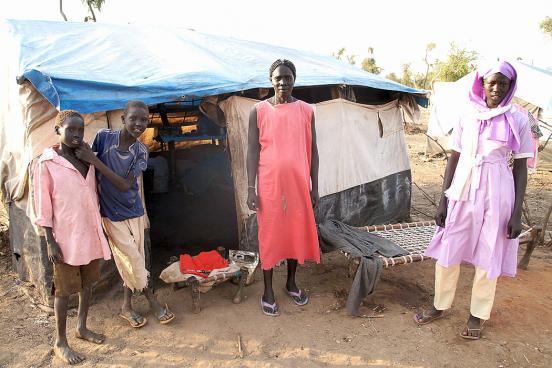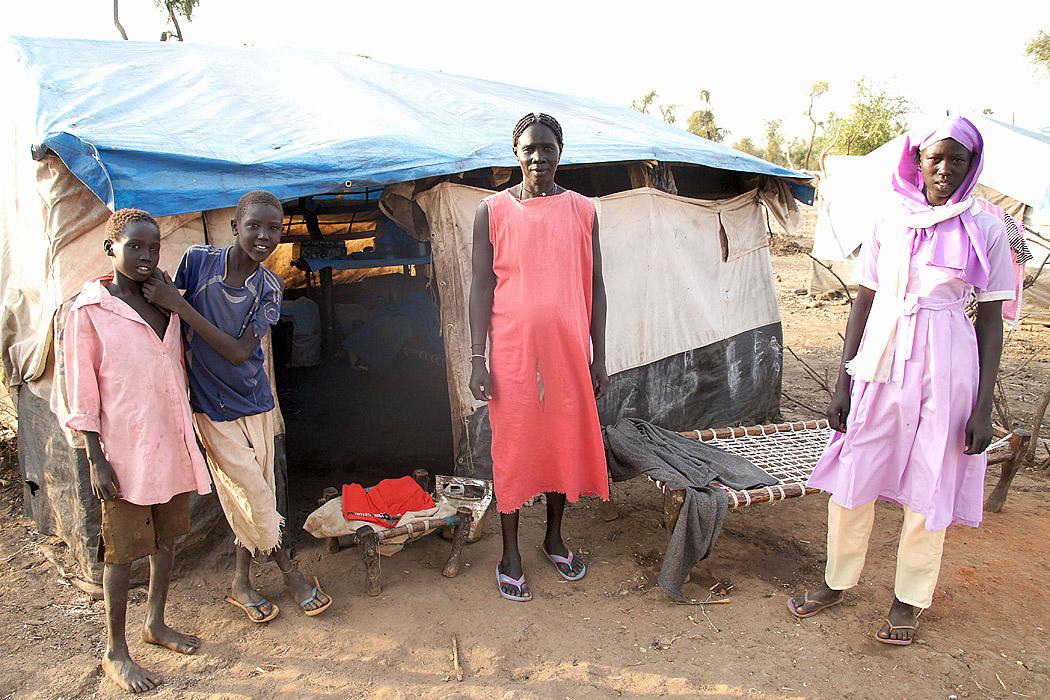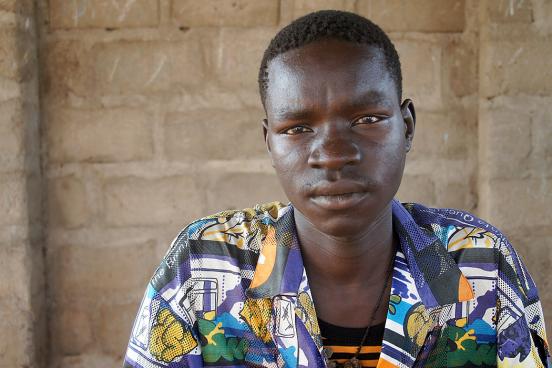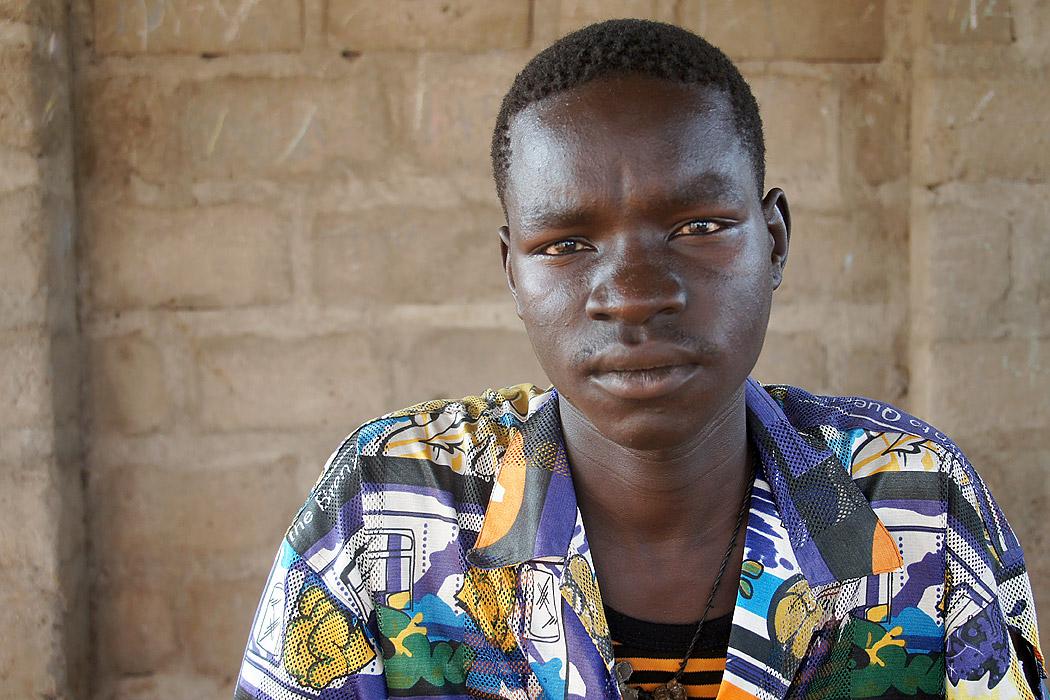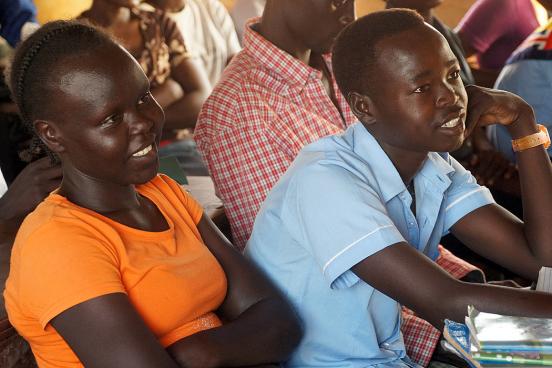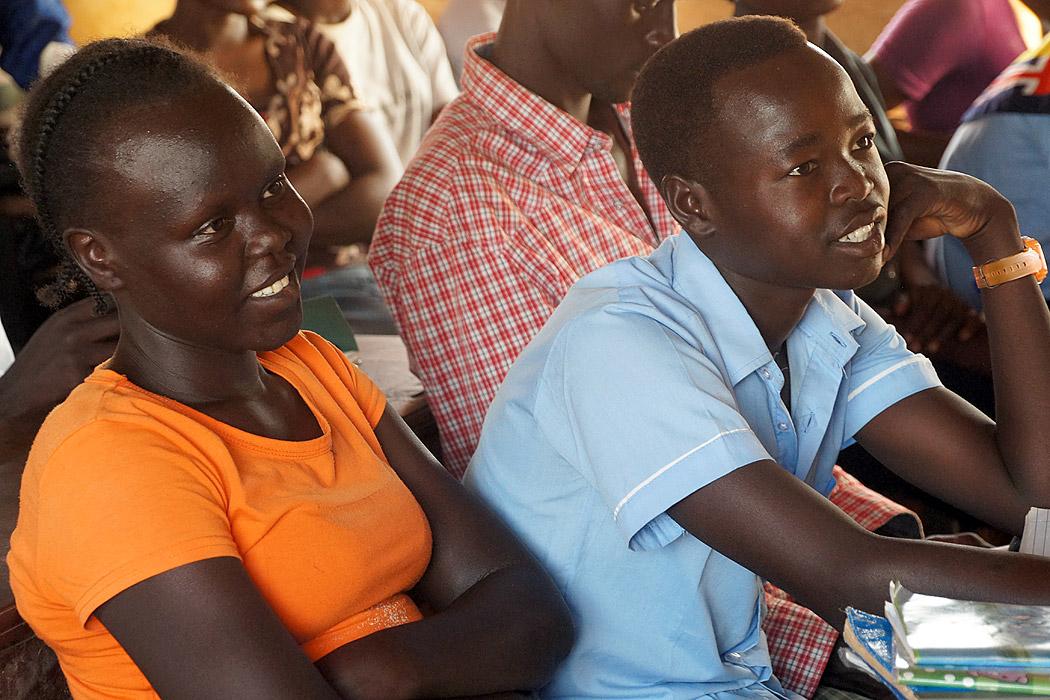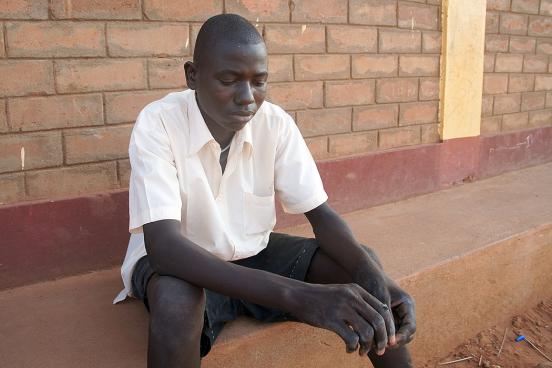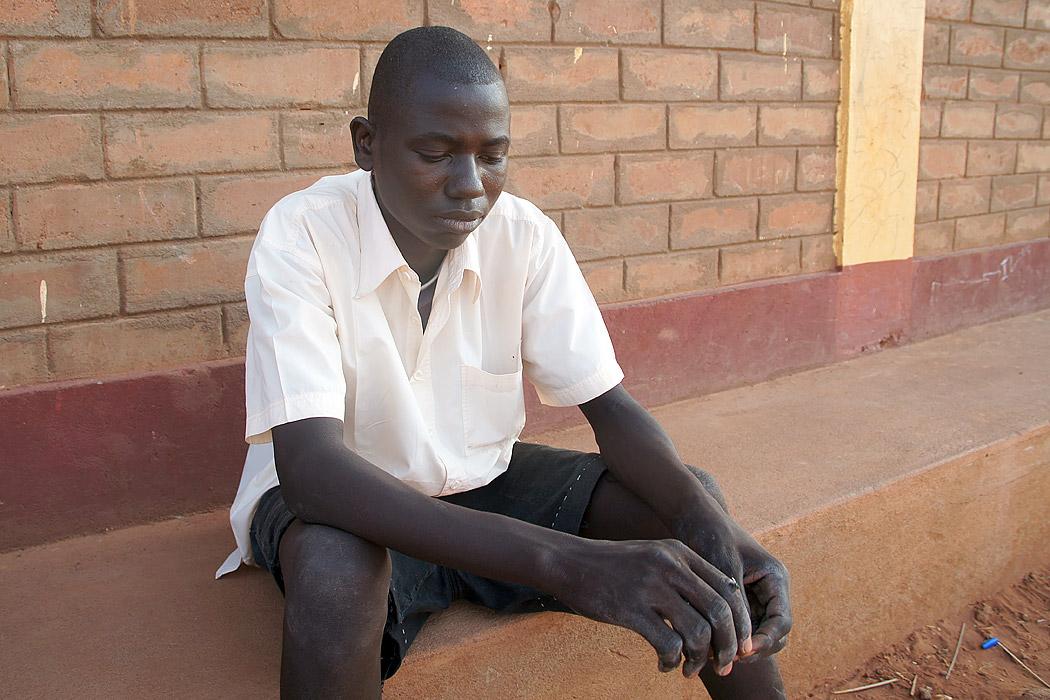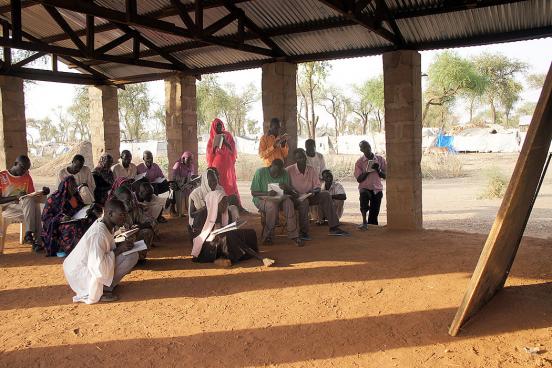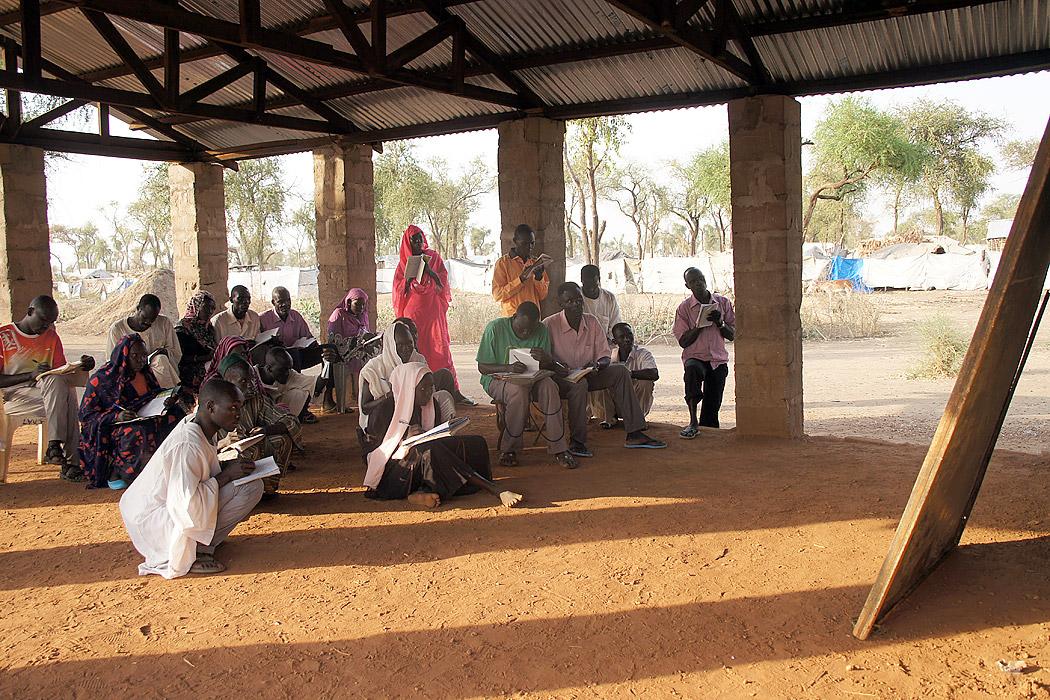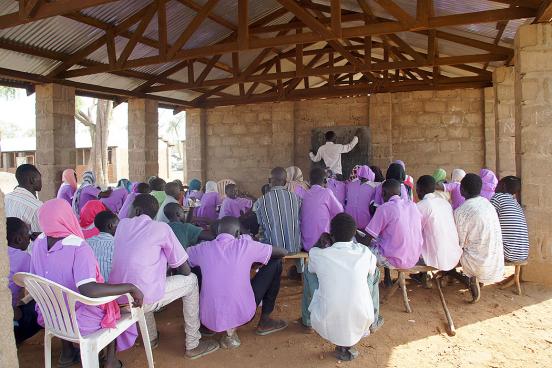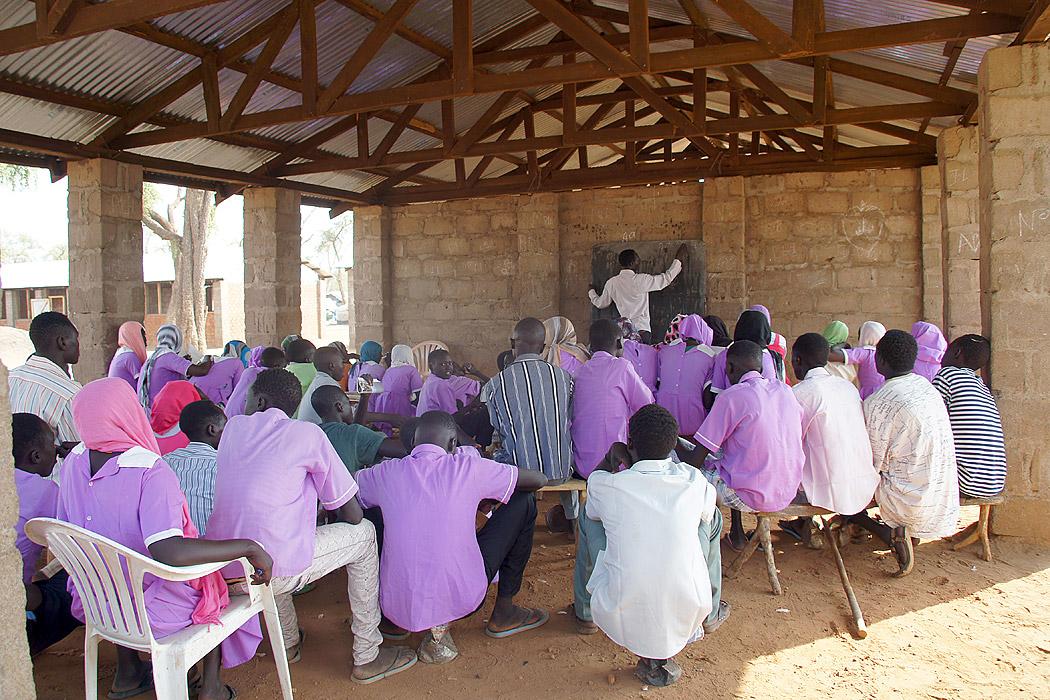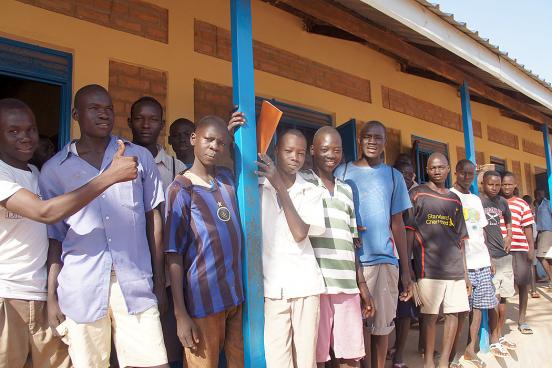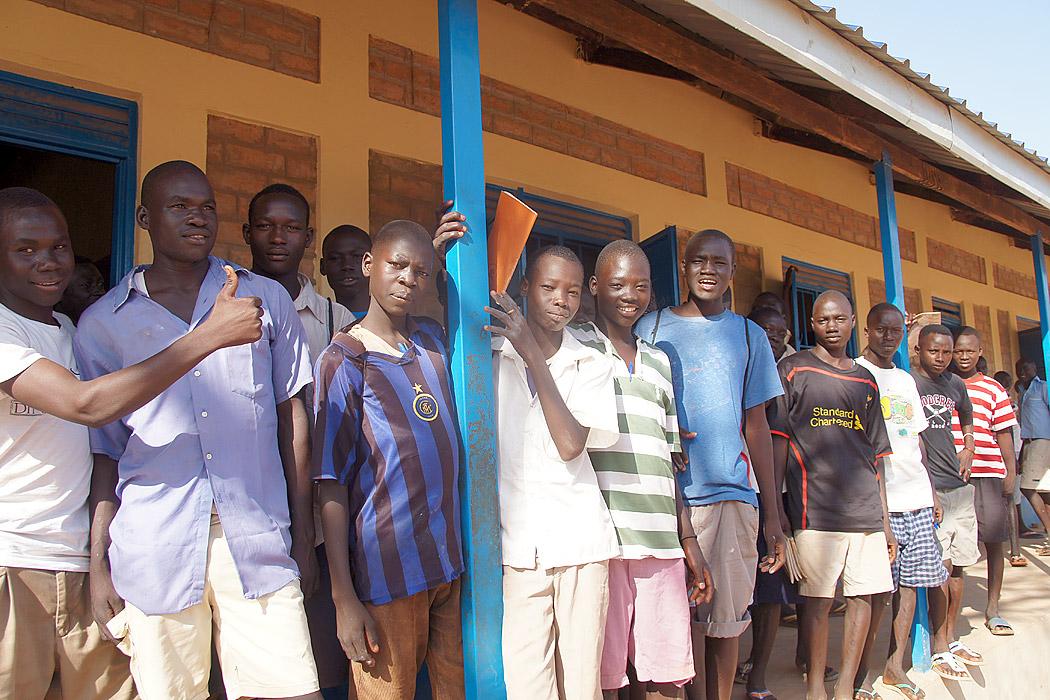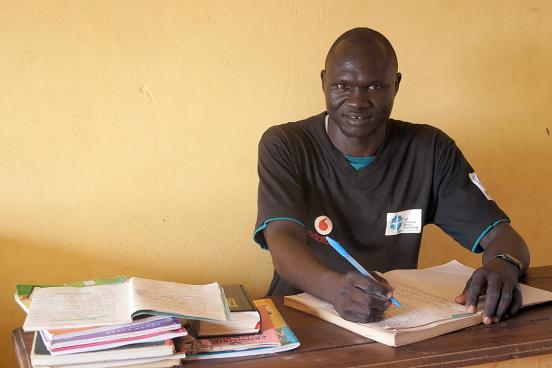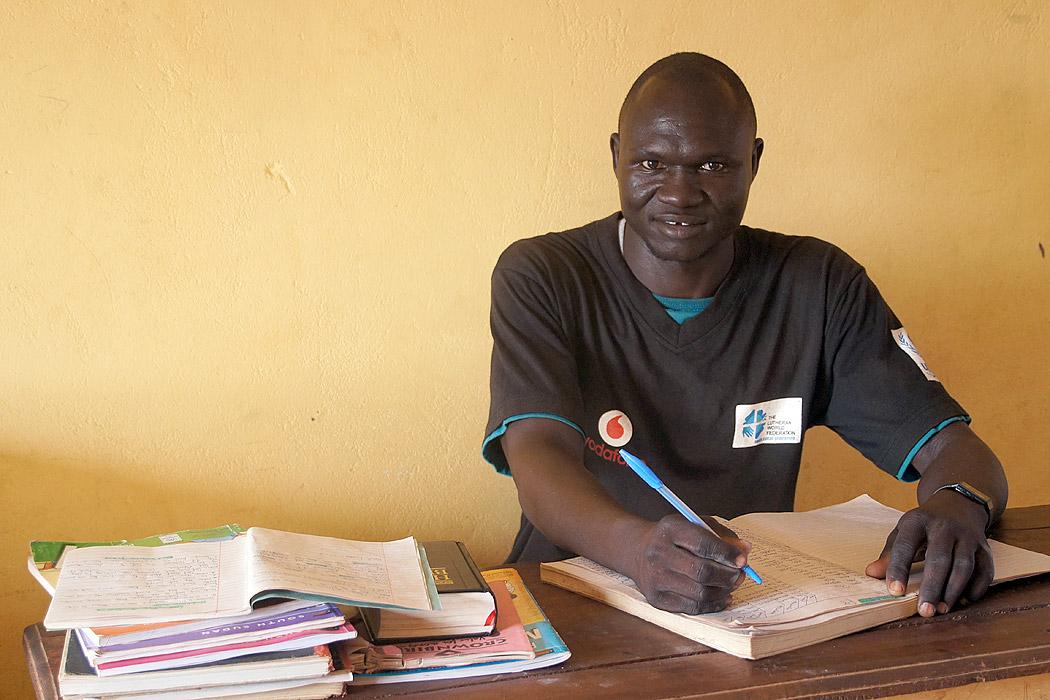Back to school in Maban, South Sudan
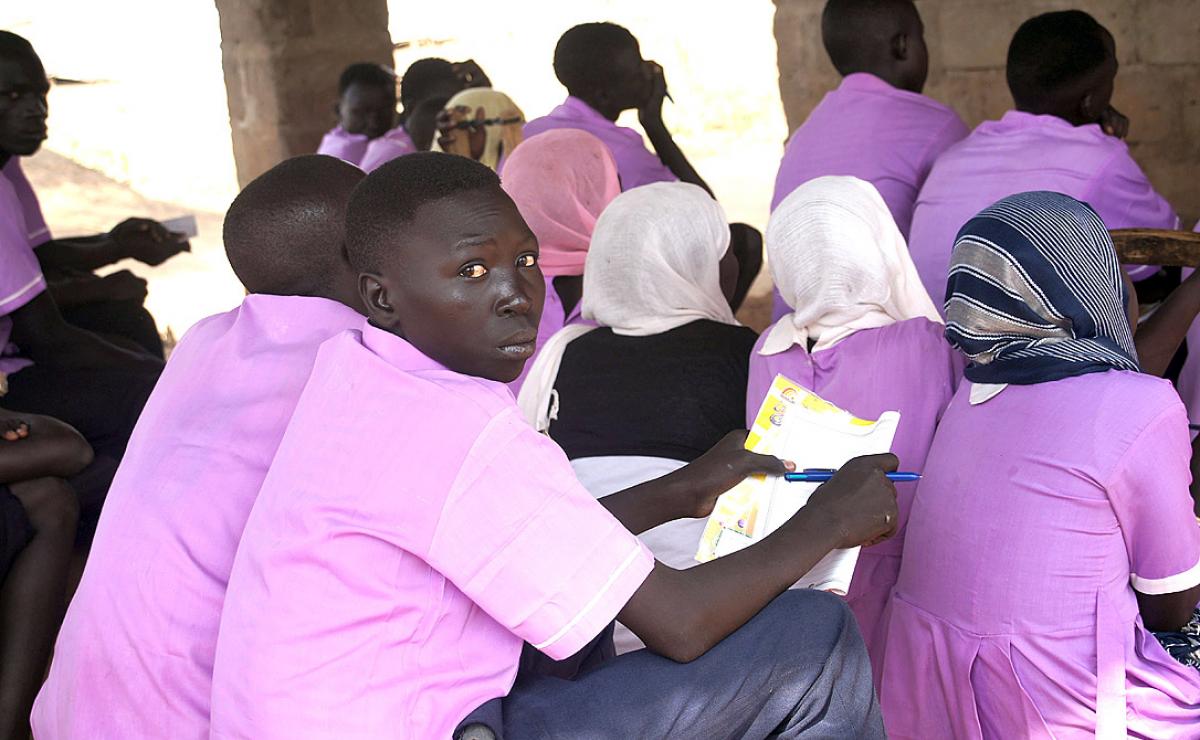
Students in refugee camp start new term
BUNJ, South Sudan/ GENEVA, 3 March 2015 (LWI) – “What is science?” the teacher asks. In front of him are about 40 teenagers dressed in light purple school uniforms. “It’s the study of living and not living things. How do you know a living thing?”
Faiza raises her hand. “A living thing can move from one place to another,” she says in a clear voice. “Very good,” – the teacher makes a note on the board while the students applaud. The answer, seemingly simple for a teenager, marks a big achievement: English is not Faiza’s mother tongue. Since she started school nine months ago, she has mastered the language well enough to express herself in class.
Faiza is one of 2,508 students enrolled in The Lutheran World Federation’s (LWF) Accelerated Learning Program (ALP) in the refugee camps in Maban County, South Sudan. Funded by EU Children of Peace (ECHO), the program is devised to help older students who missed school because of conflict and displacement finish their primary education and go to secondary level. There are 10 ECHO funded ALP centers in Yussif Batil and Kaya Refugee Camps, and another four ALP centers funded by a different donor in Gendrassa Refugee Camp.
Interrupted Education
Like all of her classmates, Faiza has come from Blue Nile, Sudan, where fighting has been ongoing since 2011. The conflict has forced families like Faiza’s to flee their homes and go to South Sudan. The fighting in Blue Nile has interrupted the education of the teenagers for years and regular school attendance is new to them. The ALP helps them finish their primary level education. Since the students are older, they cover the curriculum of two primary school years in one year.
Two years ago, Faiza, her mother and her siblings settled in Yusuf Batil camp in Maban. They were allocated a small space and building material for a hut and a fence to shield the family’s living space from the neighbor’s. Yet the door, made of branches and a plastic sheet, stands wide open, and more children than belong to the family are playing in the small yard.
“I can hear the school bell from here” Faiza says. “When I hear it, I know I have to hurry”.
At 16 years, Faiza is one of the oldest girls in her class. Most girls are only sent to school at a younger age. “My mother thinks this is important,” the girl, one of the best learners in the third level, says. Many girls like Faiza are in danger of being married at a very early age, sometimes as young as 13 years, and consequently leave school.
Challenging Environment
The students in Maban are learning under difficult circumstances. They speak Arabic and have to learn English first. There is a shortage of qualified teachers. The ongoing conflict in South Sudan delayed the start of the project. Tension between refugees and the host community, teachers on strike demanding pay rise, staff evacuations due to sporadic fighting and threats of militia attacks keep interrupting the school year.
The fighting in South Sudan has made road transport impossible, delaying the delivery of textbooks and building materials. Just recently, the desks for the schools in Gendrassa, Batil and Kaya refugee camp had to be flown in by air cargo. Still the classrooms in Maban do not have walls. The students sit on homemade benches and used oil tins from the food distributions in a structure which is little more than a roof to provide shade from the scorching heat.
Serve their people
Despite the circumstances, they appreciate the possibility to learn. “At home, we had to buy our own books,” 18-year-old Nikola says. “Here, they are being provided by the LWF”. Nikola wants to become a doctor so he can help his family. He has two younger brothers with physical disabilities. They move on crutches, and cannot attend school because it is too far, Nikola says. He hopes one day they’ll be able to go to school like him.
“Many children in ALP have dreams to be teachers, doctors, lawyers, engineers and serve their people as leaders in future when they go back home to Blue Nile,” LWF interim team leader Julius Tiboa says. “Like Faiza, they will need a lot of self-discipline to complete their ALP, join secondary education and eventually sign up for courses in higher institutions of learning. LWF and its partners are contributing to the realization of these children’s dreams in the remote parts of South Sudan”.
LWF has been operating in Maban since September 2012. The core activities include Education and Child Protection. LWF works in the three refugee camps Yusuf Batil, Kaya and Gendrassa with a total population of more than 78,000 refugees. The team consists of 540 staff, 483 of them being refugee staff.

